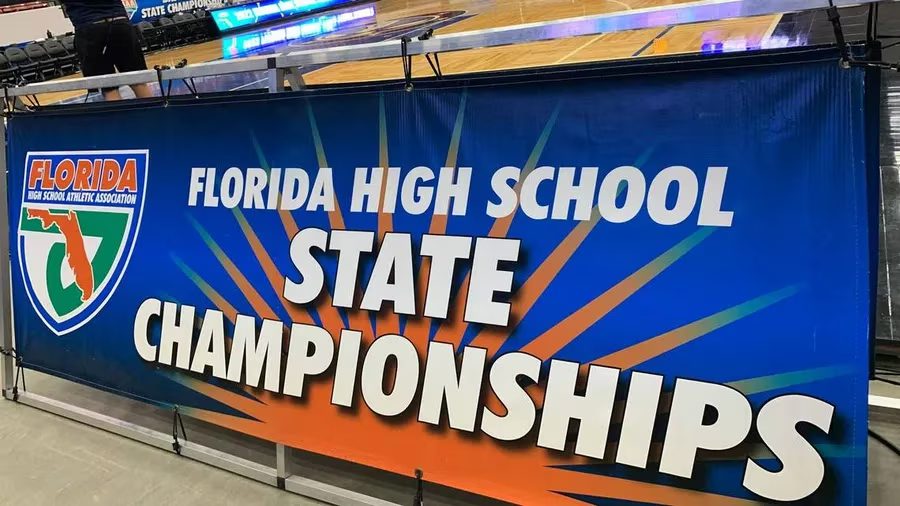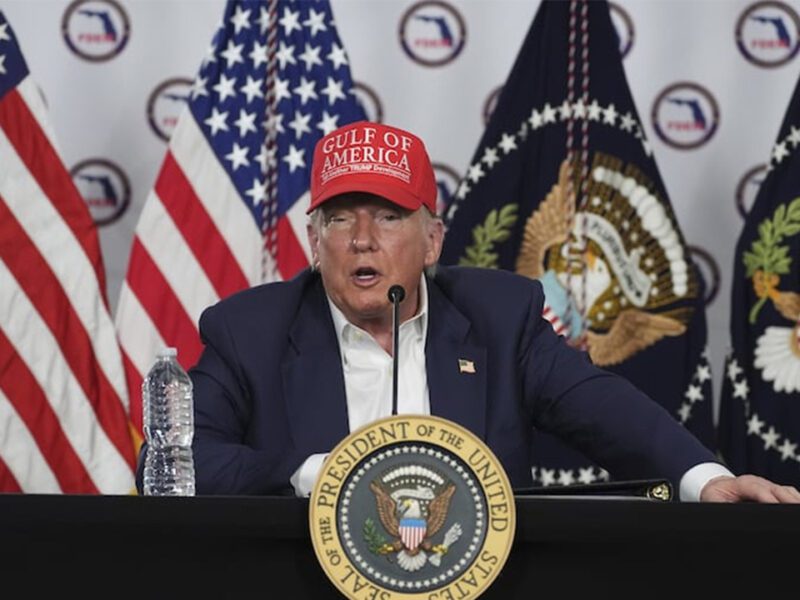Florida lawmakers move to give DeSantis control over school athletics board
Tampa Bay Times | By Lawrence Mower | February 16, 2023
The bill would also allow two minutes of “opening remarks” at games.
TALLAHASSEE — A week after Florida’s high school sports association decided against requiring studentsto report their menstrual cycles, state lawmakers moved to give Gov. Ron DeSantis control over the board.
A House committee advanced a bill on Wednesday that would put the governor in charge of appointing all the members of the governing board of the Florida High School Athletic Association, a private nonprofit organization that oversees sports for grades six through 12 in public schools.
Lawmakers’ debate over House Bill 225 didn’t include the association’s decision last week to remove questions about students’ menstrual histories from forms that must be signed by a physician for students to play high school sports.
The questions had been optional on the forms for at least a decade. But when the association’s medical advisory committee recently recommended adopting a version of the form with mandatory questions about menstruation, it generated outrage from parents, physicians and pediatricians.
The chairperson for the association’s board, who is athletic director at Clearwater Central Catholic High School, said last week that “the governor’s office had nothing to do with” the issue and hadn’t contacted the association.
DeSantis’ office first proposed taking control of the association last year, before the controversy over menstrual questions erupted, according to emails and draft legislation first reported by journalist Jason Garcia. No lawmaker ultimately filed the administration’s proposed legislation.
The governor’s office did not respond to questions about whether the governor supported this year’s bill.
In addition to giving the governor control of the association, House Bill 225 would allow public schools to join other athletic associations. Schools would also be allowed to make “opening remarks” before events, and it would allow any student being home-schooled or in a private school to try out for public school teams.
The association currently has “full autonomy” and reports to no one, said the bill sponsor, Rep. Fred Hawkins, R-St. Cloud.
“Anybody that is overseeing our students, whether in the classroom or on the athletic field, should have some oversight by membership and the state,” Hawkins told lawmakers Wednesday.
Currently, 15 of the board’s 16 members are elected or chosen among public and nonpublic schools in each of the four regions in the state. The other position is held by the state education commissioner or their designee.
Under the proposed legislation, the board would be reduced to eight members chosen by the governor, plus the education commissioner.
Democratic lawmakers wondered whether allowing “opening remarks” would include prayers. The legislation allows for up to two minutes of remarks for each school during championship events and series.
The athletic association could not “control, monitor, or review” the remarks or the choice of speaker, and a disclaimer would have to first be read that the remarks “are not endorsed by and do not reflect the views and opinions of the athletic association.”
For regular-season events, allowing opening remarks would be at the discretion of each school.
Hawkins did not deny that prayers would be allowed during the opening remarks, but he said it was “just a small portion” of how schools might want to use the time.
“It could be recognition. It can be retirement of a coach. A lot of things can be used in these opening remarks,” Hawkins said.
The bill is also necessary to break the “monopoly” the Florida High School Athletic Association has on Florida’s high school sports, he said.
Schools are not required to be part of the FHSAA to play sports in Florida, but membership and adherence to the association’s rules are required to compete in officially sanctioned state series. Most states have multiple athletic associations for public schools, Hawkins said.
Schools have considered seceding from the association, such as in 2020, when the Miami-Dade County Public Schools board vice chairperson proposed leaving over the board’s plan to resume athletics during the pandemic.
“The smaller schools cannot compete, and it’s about time that they’re able to go to some of the independent associations or independent Christian associations,” said Rep. Mike Giallombardo, R-Cape Coral.
Wednesday’s vote was 15-2, with two Democrats voting in favor of the bill. Two Democrats, including Rep. Christopher Benjamin, D-Miami Gardens, voted against it.
“I’m concerned with unintended consequences,” Benjamin said.






